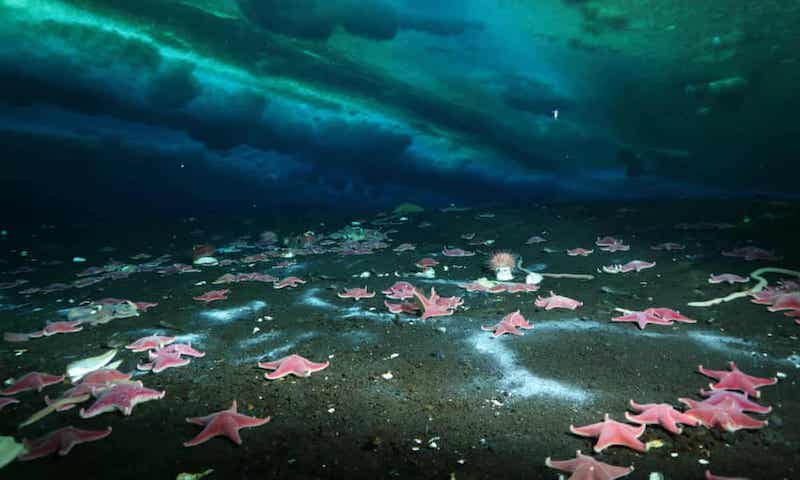A team of researchers with Oregon State University has confirmed the first active leak of sea-bed methane discovered at McMurdo Sound situated in the Ross Sea, Antarctica.
The methane leak at the Cinder Cones is not in a part of the ocean that has been warming; thus the reason for the leak is a mystery… And microbes behave stangely…

Scientists believe that there is a large amount of methane sealed beneath the ocean floor off the coast of Antarctica.
It is believed to have developed from algae decaying beneath the seafloor sediment. And it has likely been there for a very long time.
Now, a team of researchershas confirmed the first active leak of sea-bed methane in Antarctica, more exactly at Cinder Cones located at McMurdo Sound situated in the Ross Sea.
No warming, weird microbes behavior
The researchers note that the methane leak at the Cinder Cones is not in a part of the ocean that has been warming; thus, the reason for the leak is a mystery.
Much more concerning is the reaction of undersea microbes. Prior research has shown that when other parts of the seafloor begin releasing methane, microbes move in and eat it, preventing it from making its way to the surface and into the atmosphere. Cinder Cones has been leaking for at least five years, they note, but as yet, methane-eating microbes have not moved in.
Thus, the methane is almost certainly making its way into the atmosphere. And that could go BOOM! Or for the mainstream readers it could enhance global warming (although the current weather anomalies show unprecedented amount of snow and cold temperatures in different parts of the world).
They plan to continue monitoring seepage at Cinder Cones, noting that it could take as long as five more years for microbes to move in. But that research will have to wait, as the pandemic has put their plans on hold.
Antarctica’s ocean may be warming and that is likely related to the numerous undersea volcanoes, whose activity may also be increasing:
More strange and mysterious Antarctica news on Strange Sounds and Steve Quayle. Now if you are looking for supplements to increase your healthy lifestyle and sexlife please visit Natural Health Source. [PRS, Phys]











